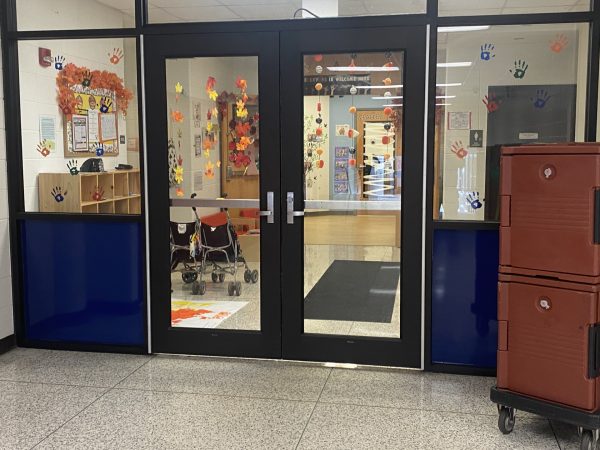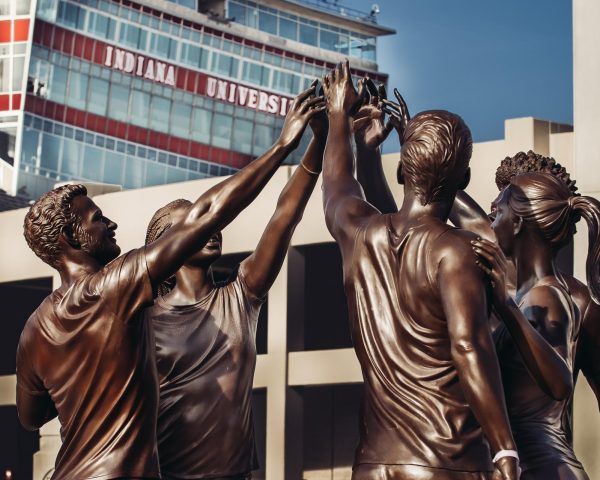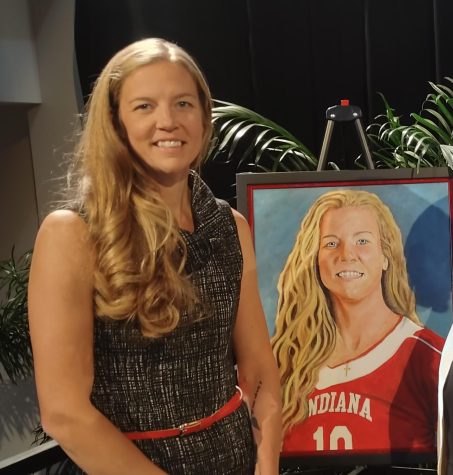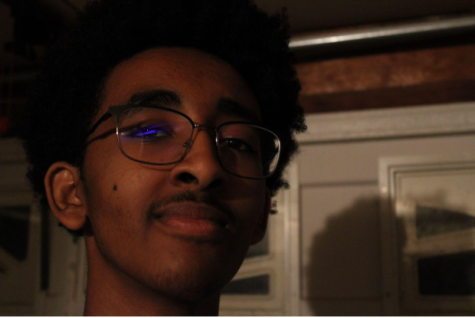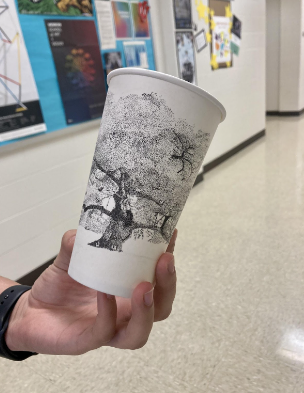Legalized Hate: Anti-Semitic Graffiti Prompts Discussion at North
A brief outline of hate crime legislation in Indiana and across the country, along with a Jewish student’s thoughts on the graffiti at North and Indiana’s lack of hate crime legislation
DISCLAIMER: The student interviewed in this article has chosen to remain anonymous.
On Tuesday, January 8th, a student reported anti-Semitic graffiti to the North administration after finding it in the boys’ bathroom by the 500s pod. The student did not make the report until after school hours on Tuesday, and the school had processed the report and removed the graffiti by Wednesday. Given that it is one of the most-trafficked bathrooms in the school and that there is not a firm time as to when the vandalization occurred, it is unlikely that a culprit will be identified.
If the person responsible is identified, they would be charged with vandalizing school property and would receive punishment for such a crime. But why is putting anti-Semitic graffiti in a school restroom treated the same as if someone had painted their name on the side of a building?
That’s because Indiana is one of five states, along with Wyoming, Arkansas, Georgia, and South Carolina, that doesn’t have a law in place specifically criminalizing acts of hatred based on things like a person’s race, religion, national origin, or gender. In the forty-five states that have passed hate crime legislation, protections are sometimes expanded to include political affiliation, disabilities, homelessness, and working in law enforcement. However, a significant point of conflict in successfully passing hate crime bills, as seen in Indiana, has been protections for LGBTQ+ people, especially for transgender individuals.
In the last few decades, the Indiana State Assembly has tried dozens of times to draft and pass hate crime legislation. Some bills stalled in committee or didn’t make it to the floor in time for a vote, but several, especially in recent years, have simply failed because they included protections for transgender people. For many, the debate over these protections leave no room for compromise. Some lawmakers claim they won’t support legislation that protects trans people, whereas other vow not to support legislation that doesn’t.
A recent FBI report reveals that hate crimes increased by 17 percent from 2016 to 2017, of which 60 percent were related to race and ethnicity, 21 percent of hate crimes were due to a person’s religion, and 16 percent were based on a person’s sexual orientation. And despite making up less than 1 percent of the United States population, hate crimes against transgender people accounted for nearly 2 percent of all reported hate crimes in 2017. The national increase in hate crimes has pressured members of both parties in Indiana to write and pass hate crime legislation as quickly as possible. And in late 2018, Indiana Gov. Eric Holcomb, a Republican, announced his support for such legislation.
Existing hate crime laws across the country are mixed on protecting LGBTQ+ people. In the forty-five states that have passed hate crime legislation, eighteen states include protections around sexual orientation and gender identity, twelve states only include protections around sexual orientation, and fifteen states provide no protection. It is still anyone’s guess as to which category Indiana will fall into when, and if, it passes a hate crime bill in the near future.

Many students and staff members were surprised to learn of the anti-Semitic graffiti in the bathroom, but some, especially those belonging to marginalized groups, were not. To one Jewish student, who has chosen to remain anonymous, anti-Semitism at North is nothing new.
“There’s always been anti-Semitism in the bathrooms. I learned about it before I came to North,” the student said. “When I heard there was more, I just sighed and continued on with my day, as I was disappointed but not surprised.”
And the student feels as if the school blew the incident out of proportion, given the frequent nature of offensive graffiti in the school restrooms.
“The email was overdoing it. It implied that it was a new issue and not chronic,” the student said. “Otherwise, I’m glad they at least acknowledged it.”
The student also reveals that they have never been a victim of discrimination in the building, but cites the fact that only close friends are aware of their Jewishness as an explanation for this. And in regard to Indiana’s lack of hate crime legislation, the student brings up a darker piece of state history.
“It’s not surprising, considering Indiana’s vast history with the KKK. Bloomington has historically been associated with them, as well,” the student said.
While understanding the desperate need for hate crime legislation in Indiana, the student voices their support for a bill that includes protections for transgender individuals.
“I know it’s tempting to just get on with it,” the student said, “but I don’t want it to pass if it doesn’t protect transgender people, as well.”
To their classmates and teachers, the student sends a message.
“When people make anti-Semitic jokes and rhetoric to their friends, we hear them. And it sucks,” the student said.
In an email to parents and guardians in the days following the incident, North’s acting principal Dr. Andrea Mobley commented on North’s welcoming history and agreed that the school can always do better.
“North has always been known and respected for its diversity and acceptance of others, but we can always improve. We want to ensure that all students, faculty and staff feel welcome and supported by all,” the email said. “The BHSN Faculty Equity Team will be following up with resources for teachers on how to have conversations with students around diversity and acceptance and also how to recognize symbols not compatible with North’s philosophy of acceptance of diversity.”




